INTERVIEW | A realistic benchmark for Pakatan Harapan in the next general election would be to win about 80 parliamentary seats, PKR vice-president Rafizi Ramli said.
Rafizi, 44 - who is making a return to active politics - said Harapan needs to start doubling down on appealing to voters immediately in order to avoid massive casualties in the 15th general election (GE15).
He pointed to Harapan’s bad performance in the Johor snap polls and warned that the opposition coalition is in trouble as Johor is a “microcosm of Malaysia as a whole”.
“The best I hope for realistically now is to make sure Harapan stays intact as the largest opposition bloc in Parliament after the next general election.
“What we don’t want is that not only did we lose, but we are the third or fourth bloc in Parliament because that means Harapan is losing relevance and that is dangerous.
“So, realistically speaking, let’s try to win about 80 seats in the next general election because I think 80 seats is the kind of benchmark we need to aim for to remain as the largest or second-largest bloc in Parliament,” Rafizi told Malaysiakini in an interview at his office in Sungai Besi recently.
In the 2018 general election, Harapan plus Warisan won 121 seats, while the coalition's three key core parties, PKR (47), DAP (42) and Amanah (11), bagged 100 seats.
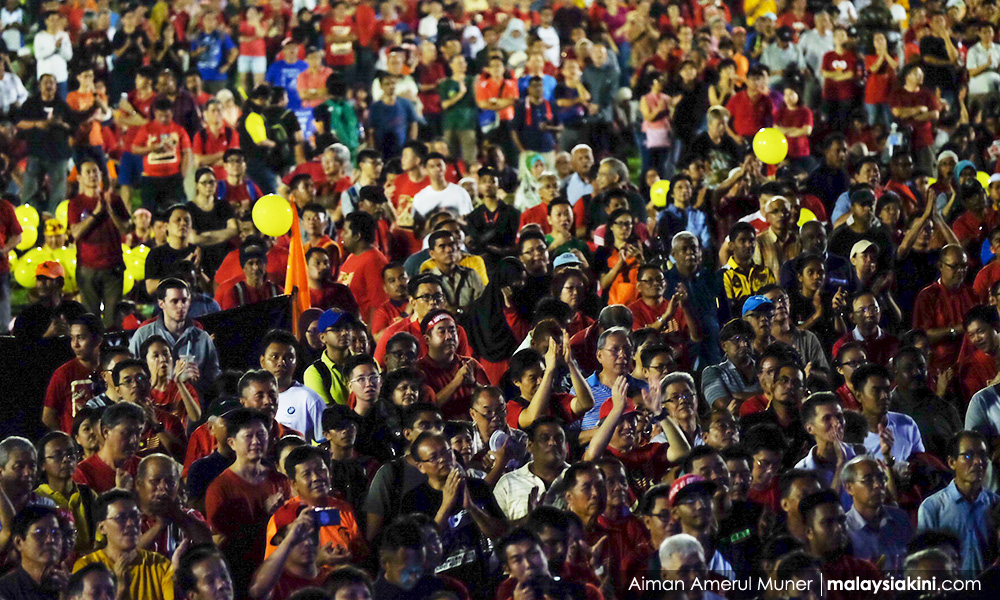
One issue Harapan faces is the debate over whether PKR president Anwar Ibrahim is still the right prime minister candidate for the opposition coalition.
After Harapan’s poor showing in the Malacca, Sarawak and Johor state elections, there have been growing criticisms about Anwar’s relevance as well as calls for him to step down as opposition leader.
Opening Pandora’s box
Rafizi believes Anwar is still the best prime minister candidate for Harapan at this time, but more importantly, Harapan needs to stay focused and united at this point in time, instead of arguing over prime minister candidates.
“If Anwar steps down now - and going into the next general election - Pandora’s box will open on who is the best prime minister candidate.
“Most probably, there will be no end to the bickering. Everyone has their own opinion and not a single person will be able to command the respect of the three parties.
“Irrespective of what people say about Anwar, especially what has happened in the past two to three years, the fact remains that he is still the best prime minister candidate going into the next general election for Harapan,” Rafizi said.
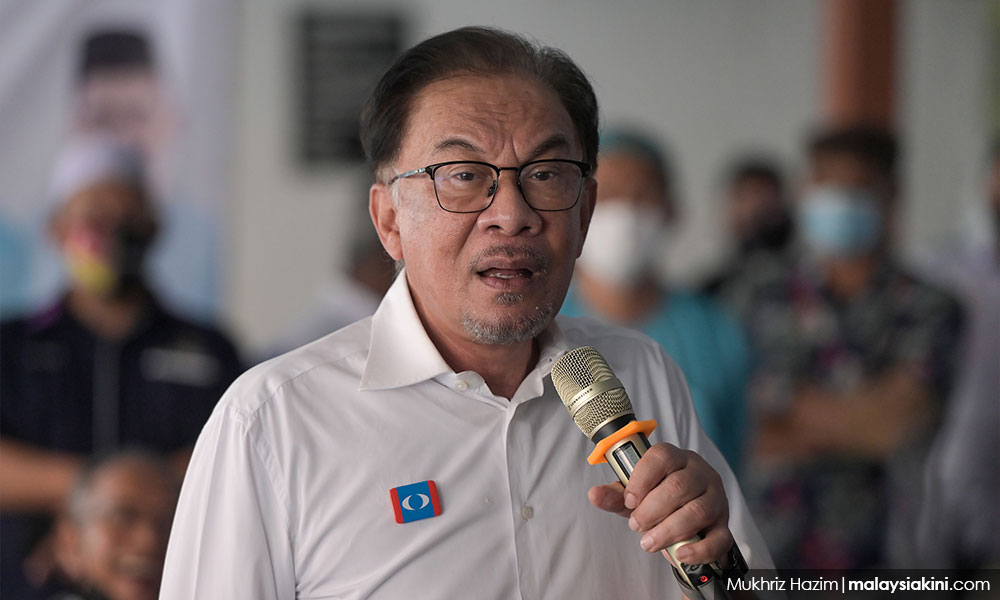
He later added that Harapan should not be talking about prime minister candidates at all, as it is not what the majority of voters are most concerned about.
While he acknowledged that urban voters tend to care about prime minister candidates, Rafizi said young voters, first-time voters and economic voters do not actually pay much attention to such things.
“To them, they’re all the same. We have changed three prime ministers, they still can’t sort out our problems.
“So they vote by sheer excitement that there can be something worthwhile that may come out of these people, they vote out of a belief that these people are sincere about what they want to do, they vote out of excitement that these people are competent and they teach me something (about going) beyond rhetoric,” he said.
‘Big tent’ falsely assumes opposition will get votes
Also, contrary to what most Harapan leaders have espoused, Rafizi does not believe that the “big tent” approach would bring many benefits to Harapan right now.

Instead of seeking new partners who are probably unable to bring new voters to Harapan, he said the coalition should focus inwards and improve themselves as a product to the voters first.
“By now, you know I am totally against this so-called concept of ‘big tent’. Not because of anything, it is just that the data suggests otherwise.
“The approach for a big tent is taking a simplistic view about voters’ tendencies,” he said.
“Those in favour of the big tent approach think that combining the vote shares of certain parties will lead to victory for Harapan, but this does not take into account the concept of vote transferability.
“The big-tent approach assumes that this thing doesn’t exist. It assumes that if you eliminate the number of parties contesting, the votes will automatically go to you. It doesn’t work like that. Most probably, you may suppress your own core votes,” he said.
There is also the question of whether the new parties they seek to work with can bring any added value to the Harapan coalition.
Fellow opposition parties such as Muda, Pejuang and Warisan are currently independent of the Harapan coalition, which is the largest opposition bloc in Parliament right now.
Muda had struck an electoral pact with Harapan in the Johor snap polls, where the youth party made its electoral debut and managed to win one seat - Puteri Wangsa.
Pejuang and Warisan had lost badly in the Johor polls, with all their candidates losing the deposits in the seats they contested.
With Muda, Rafizi said based on their performance in the Johor elections, there is no evidence that they brought in new votes to Harapan as both appear to be talking to the same crowd of voters.
‘Bitterness and sting’
Meanwhile, working with Pejuang may bring more trouble than benefits as the “bitterness and sting” from former prime minister Dr Mahathir Mohamad’s role in the fall of Harapan’s government may push away Harapan’s core supporters, he said.
“We should look into ourselves and see how we can do better to appeal more rather than stonewalling and feel that whatever we have now is already good and let’s try to get other people.
“Because when you bring other people in Harapan, without really making sure they can bring extra votes, then it will create dissension in the coalition,” Rafizi said.
Below are excerpts from the interview, which have been edited for language and brevity:
Forget reclaiming power
Malaysiakini: The country is ripe for generational changes and so is the party. Now that (DAP veteran) Lim Kit Siang has retired, do you think it is time for Anwar Ibrahim to step down and pass on the baton as well? Especially as people recently have started to question whether he is still relevant.
Rafizi: If Anwar steps down now, you open Pandora’s box about who is the best prime minister candidate going into the next general election. In fact, that has been the one issue that has glued the opposition for almost two decades to bring us to where we are today.
Irrespective of what people say about Anwar, especially with what has happened in the past two to three years, the fact remains that he is still the best prime minister candidate, going into the next general election for Harapan.
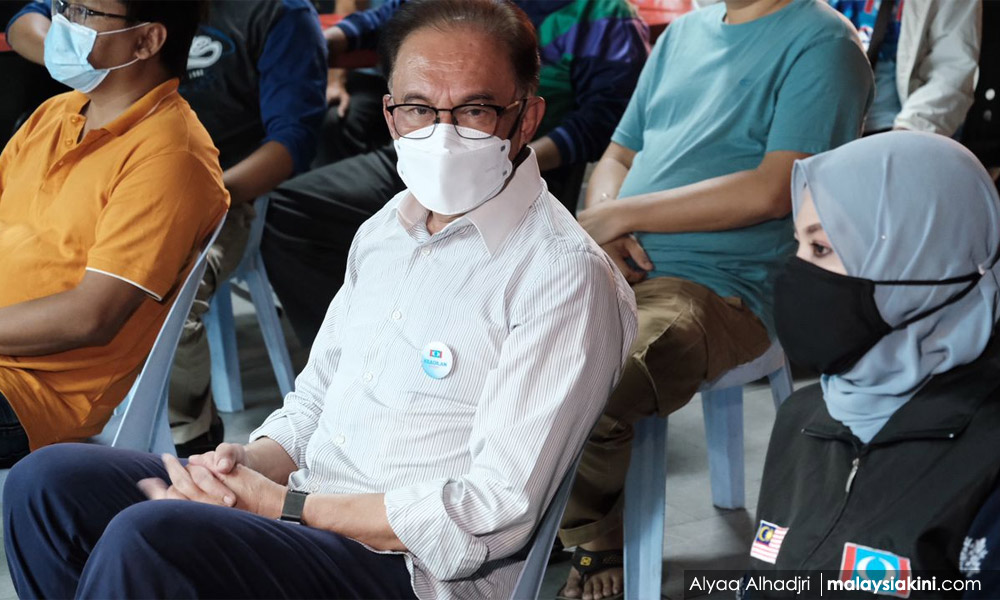
If you open the box for another prime minister candidate, most probably there will be no end to the bickering, everyone has their own opinion and not a single person will be able to command the respect of the three parties. On that basis, that’s where I think what we should focus on is how to align the narrative of PKR and Harapan to appeal to the fence-sitters.
It has been (a) chicken and egg (situation), even for him (Anwar). On one hand, there has been pressure for Anwar to be able to deliver the votes, so to speak, to get back to the government and there has been pressure from Harapan supporters to see Harapan go back to the Parliament.
On the other hand, when he tried to navigate to deliver that, you couldn’t run away from talking to Umno and the other parties because the composition of Parliament right now is such that no single party can form the government without talking to different parties with different personalities and principles.
So, it has almost been like a merry-go-round trying to sort this problem when I have voiced my opinion early on that it is not doable. Because it is damned if you do, damned if you don’t. If you do, it will be a very unstable government because you will have to accommodate god-knows-who from Umno, PAS, maybe even accepting Azmin (Ali) all over again and if you do that, the public will be disillusioned.
That’s why I have always maintained internally within PKR, right after the Sheraton Move, to forget about going back to the government.
What we can do is go back to the public, appeal to the public and build up support from the public so that if we have to go through another two to three years as the opposition, we have a much better chance to win as a stable government, without having to sacrifice our principles and policies in the next general election.
But that voice is the minority because there has been a lot of pressure internally within Harapan to go back to the government.
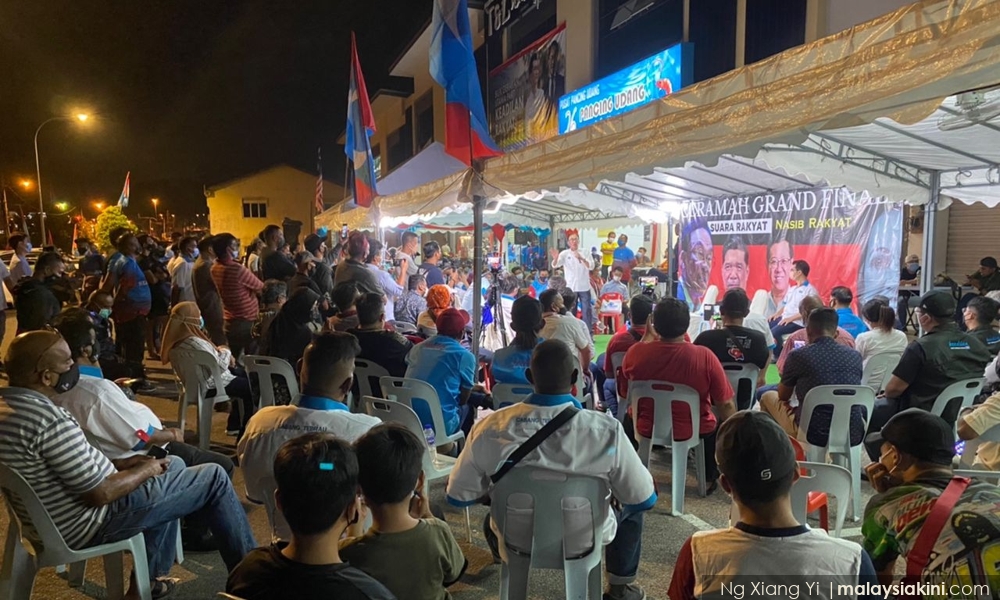
I’m not saying this because I think Anwar should not take responsibility. I think part of the responsibility was his but at the same time, to say the whole failure of Harapan in the last few elections was purely because of Anwar is also unfair. So given all this background and issues, our best chance to maintain a credible performance in the next general election is to resolve that issue of the prime minister candidate and we have resolved it.
So let’s stick with that but focus on all the other things we didn’t do too well and that includes appealing to the masses, moving away from what the public thinks as an obsession of getting (back) to power. Don’t parrot and talk about traitors and betrayals, focus on what we can offer.
Accept that perhaps the 22 months (when Harapan was in power) was not as good as what we wished for and I think the public wants to see some sincerity, instead of pointing fingers.
And if we say we have better candidates and politicians, we better prove it. We cannot just say we are better than Umno and Perikatan Nasional (PN). It doesn’t work anymore. It might have worked in 2018 but not anymore. People actually want to see us truly being better and they expect a much higher performance from our leadership.
So, rather than going into this endless debate on who will be prime minister, we better accept that it is not about personality; we have made that mistake before in 2018. Some factions truly believed that just by signing up Mahathir, he would deliver results. After the election, they also truly believed that the election was won because of Mahathir and they kowtowed to Mahathir throughout.
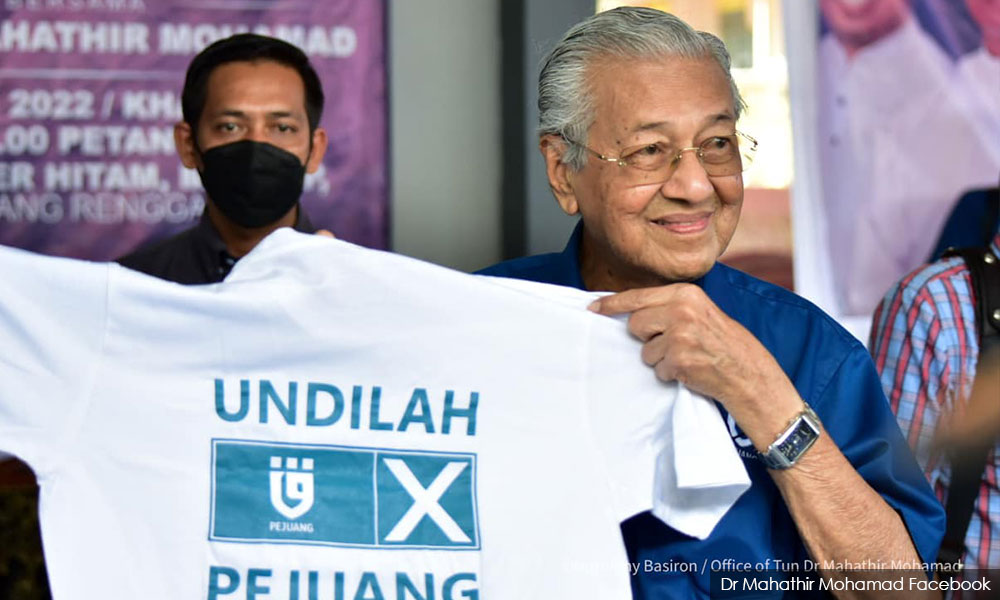
If we repeat this preoccupation with personality, this is not going to end. So the best way to appeal to the public is to win on a very sound policy platform carried by credible people. So that we understand, if we win this election it is because people chose us for what we are supposed to do and hopefully, those in government understand they have to deliver what they promised to deliver.
Malaysiakini: How do you overcome the perception that Anwar has failed, especially as he once promised that he had a strong and formidable majority?
Rafizi: Most probably we shouldn’t talk about the prime ministership. A lot of urban voters, being more on the beat of politics, feel that if you want to win, you must talk about who is your prime minister.
Try to talk to the younger ones, first-time voters, the so-called economic voters - they don’t actually pay that much attention. Especially now, to them, they’re all the same. We have changed three prime ministers, they still can’t sort out our problems. It doesn’t make any difference to normal people.
So they vote by sheer excitement that there can be something worthwhile that may come out of these people, they vote out of a belief that these people are sincere about what they want to do, they vote out of excitement that these people are competent and they teach me something beyond rhetoric.
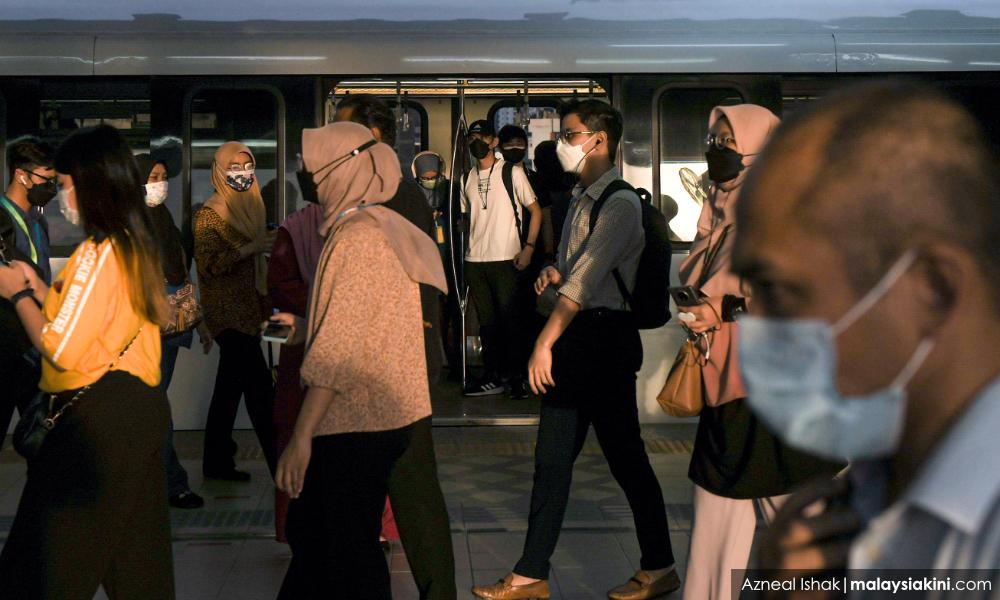
That’s what appeals to the younger set of voters, the economic voters, not really about who is prime minister. That’s what I have seen. I do not think we should go into this election talking about who is the prime minister, about winning and so on. Those are the concerns of the urban voters, but we know that even urban voters, a lot of them are economic voters who don’t really pay that much attention to all this, let alone those outside the urban centres.
If we set the narrative about how this is going to help you, this is how things are not working, and we showcase the brand new set of younger leadership, look more competent and don’t play the old broken record about 1MDB, Najib and so on, we may convince them enough to vote for the party, not the idea of whether they will form the government.
That’s exactly what happened in Johor. They did not really vote for the menteri besar, they may just go “oh it’s not going to make a difference, and Umno has been there quite a long time, so just give it to them”. More and more people are becoming that kind of fence-sitter, but I think we can navigate that issue by being multi-message, talking to different audiences differently.
Harapan brought votes to Muda, not the other way round
Malaysiakini: What are your thoughts on Muda? Do you think they will be able to energise young voters in the coming general election?
Rafizi: I observed Muda and gave them the benefit of the doubt due to the hype on social media and so on.
But the proof of the pudding was the Johor election. That was their first electoral debut and good enough, they had one clear-win seat in Puteri Wangsa because it is a Chinese-majority seat. It was even won before by PAS, which means you (Harapan) can put anyone and for sure you will win.
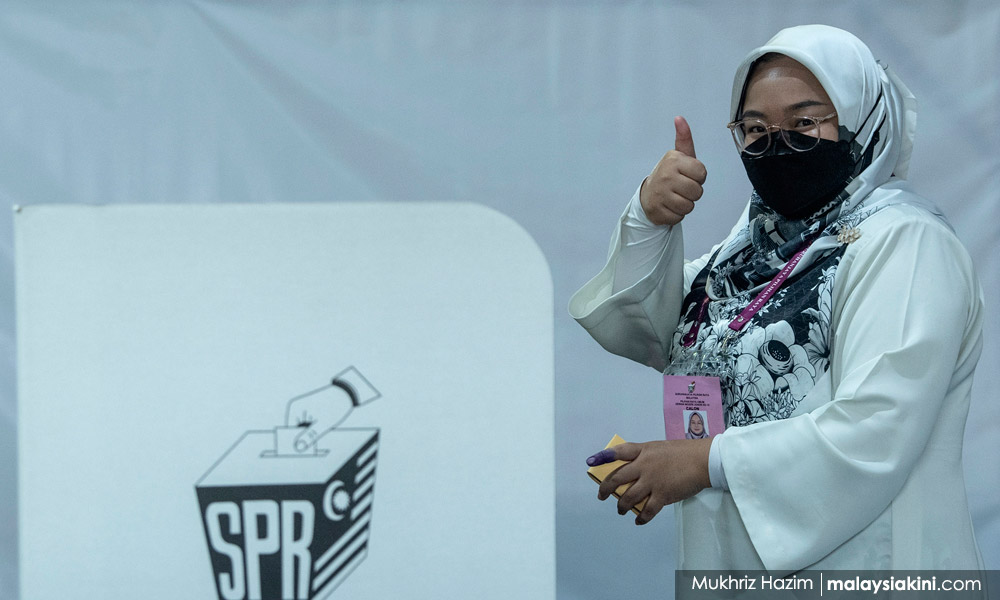
They also have seats that, by comparison, were on the higher side of non-Malays, all those seats they stood in, compared to the kinds of seats PKR and Amanah stood for, those were considered Grade A seats because the Malay population there was roughly 50 to 60 percent. Most of the PKR and Amanah seats had basically 70 percent and above of Malay voters.
We also had Larkin, where they had to compete with PKR. We can only analyse in detail once the whole scoresheet is published by the Election Commission, but we have got score sheets for some seats, especially for Larkin. That is the best way to compare.
There is no evidence that Muda brought in new voters to Harapan. In all the seats, when you compare like to like, when you take one seat with 60 percent Malay and 40 percent non-Malays and you transpose that to another PKR or Amanah seat, actually PKR and Amanah did better than Muda in similar seats.
So my early conclusion so far is that Muda basically received voters from Harapan. It is not the other way around. It is not that Muda was able to bring in a wave of new voters that supplement the existing base voters of Harapan. That is why when they went to Larkin, instead of doing better than PKR, they just split the Harapan base and that is why they got worse than PKR.
On that basis, it convinced me further that I really don’t believe in this politics of personality. The thinking was that because (Muda president) Syed Saddiq Syed Abdul Rahman was considered popular - if you bring Syed Saddiq, he will bring voters.
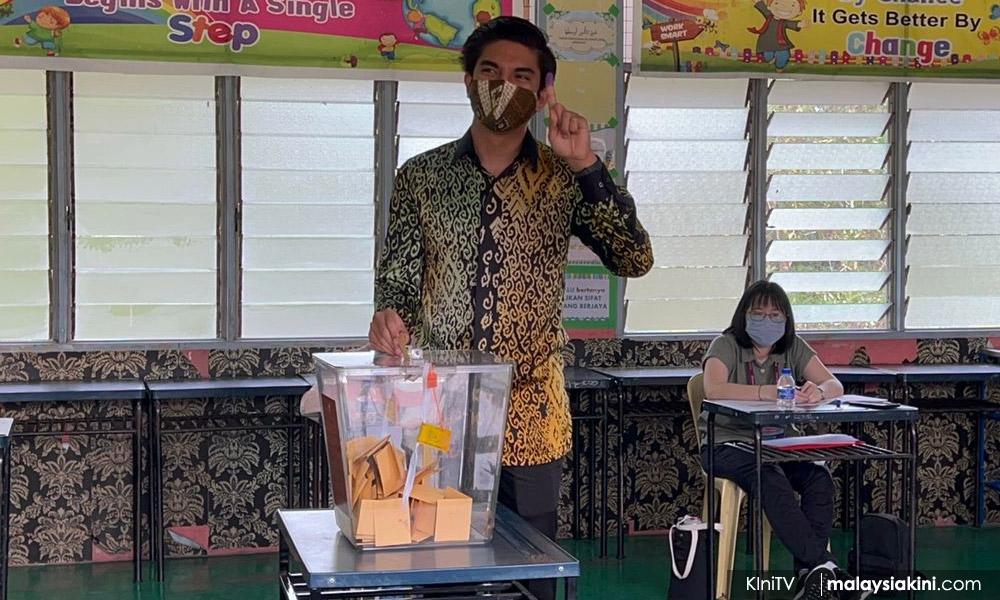
We don’t work like the Pied Piper. Voters are a lot smarter than that. They measure you by the consistency of your work, what you fight for, the depth of the issues you bring.
I am not saying Muda is not impactful. In fact, I think if PKR and Harapan are not careful, eventually Muda can fill the vacuum. Whatever you see about Muda now is basically as a reaction to the disillusionment of Harapan voters who feel Harapan is not doing something so they want to try Muda.
What is happening now is that Muda and Harapan are talking to the same crowd so it’s shifting voters away from PKR or Amanah or DAP to Muda, but Muda itself has not enlarged (the voter support).
That is what I am most worried about because if the Harapan leadership thinks that the problem we have now can be fixed by bringing in another person, another party, putting that together into a big tent, that is really dangerous because the issue is a lot bigger than that. It is about the narrative we are offering, how we connect to the voters and also realising the biggest appeal of opposition parties remains with Harapan.
We should look into ourselves and see how we can do better to appeal more, rather than stonewalling and feeling that whatever we have now is already good. Let’s try to get other people. Because when you bring other people into Harapan without really making sure they can bring extra votes, then it will create dissension in the coalition.
Further disillusionment
Malaysiakini: What is your opinion on the “big tent” strategy? Some leaders from DAP are urging their party to go solo in the coming general election and only form a coalition after the general election. What are your thoughts on this?
Rafizi: I happen to agree with that thinking (going solo). By now you know I am totally against this so-called concept of a big tent. Not because of anything, it is just that the data suggests otherwise.
The approach for a big tent is taking a simplistic view of voters’ tendencies. They look at Johor and they think PN has 25 percent, PKR and Harapan and Muda have 29 percent (votes), so with 25 plus 29 percent, we should win.
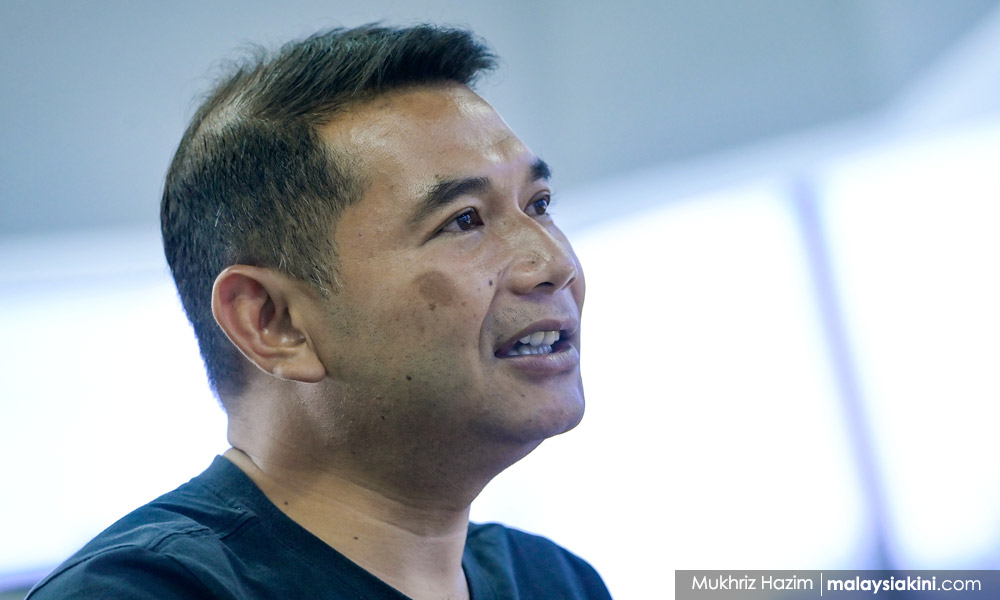
There is a concept of vote transferability, that’s what we tested in Johor with 40,000 voters. We developed that science from 2016. Do you remember when I first talked about how we can defeat BN in a three-cornered fight and the whole country basically spat on me? No one believed that.
But because we have tested vote transferability, the science behind it is you can build a mathematical model to see, given three or more options, if these parties did not exist, where the vote will go to.
The scariest part of Johor is that the vote transfer of the fence-sitters is only between BN and PN. That means the voters in Johor have kind of made up their minds, even before voting day, not to vote for Harapan.
I got the same feedback from the ground when our candidates were campaigning. The observations were so much scarier. Some of our candidates described it as almost being like an MCA candidate before - when you go around, voters are polite to you, they do not curse you because you have been servicing the area for a long time, but they were very reserved.
By now, we know that when voters are not warm to you, despite knowing you, you know they have made up their minds. That explains why you see PN candidates, although they are very new and have hardly done anything on the ground, they actually get a lot of votes because of this vote transfer between Umno, PN and Harapan. If given a choice which one the voters will choose, they actually prefer PN.
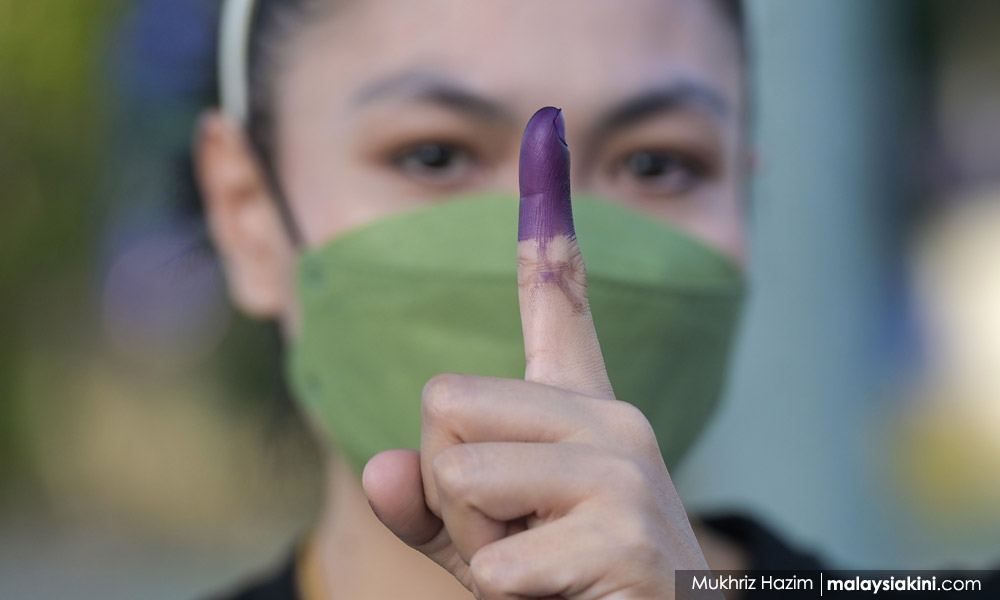
The same happened in Terengganu and Kelantan in the last general election. Fence-sitters already decided because PKR and Harapan would not be able to defeat Umno, I better vote PAS although I don’t necessarily like PAS.
The big-tent approach assumes that these things do not exist. It assumes that if you eliminate the number of parties contesting, the vote will automatically go to you. It doesn’t work like that. Most probably, you may suppress your own core voters.
What happened in Harapan now is basically our core voters, the fence-sitters who had voted for us, got disillusioned partly because of what happened with the Sheraton Move and partly also because of the attempt to work with certain parties.
Imagine if we worked with PN, how will the Chinese reconcile that these are the very people who stabbed our back? The Chinese used to back PAS in 2013, and after 2018, the kind of racist remarks that come from PAS, how do you erase the collective memories of the voters?
Same with PKR voters. How do you expect PKR voters to accept Azmin and Bersatu? It is impossible. If we recognise that voters have collective memories, it is very important to appeal to those sentiments, rather than looking for one plus one because even PN, the moment they work with Harapan and PKR, they will lose their voters.
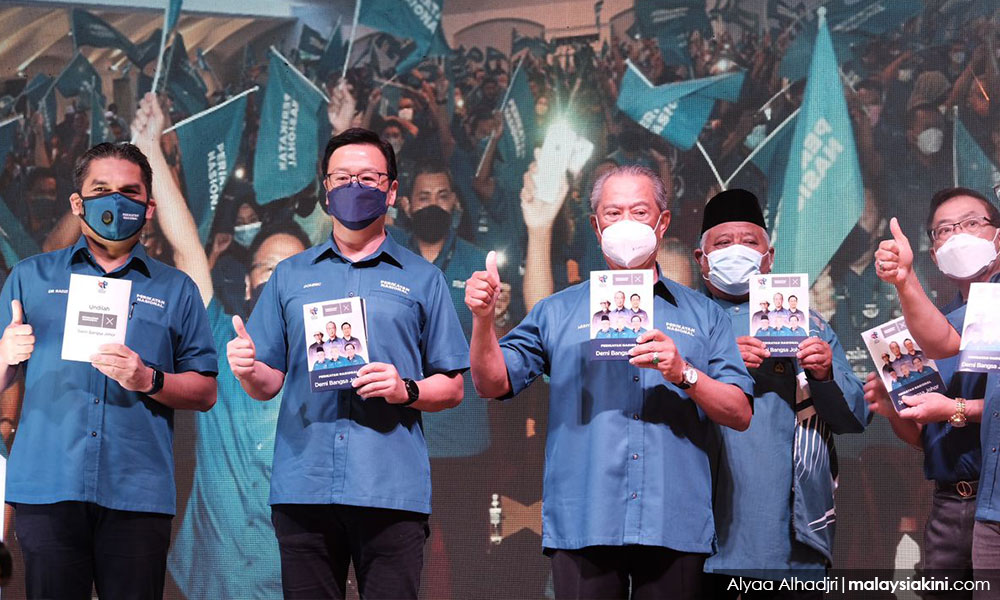
In fact, if you ask me, if the intention is to so-called have a “big tent” so you can co-opt PAS and Bersatu, the effect of that is surely delivering two-thirds majority to Umno on a silver platter because those Malays who have voted for PN before will abandon PN and vote Umno.
The issue is a lot deeper than that. It is about appealing and understanding the sentiment of voters. In the tech world, we have what we call “product-market fit”. It is about making sure the product is a fit for what they want to vote for.
If that means that it takes different parties appealing to the kind of micro-targeted audience to win seats, and if that means PKR uses its own logo and DAP uses its own logo, I think that is something that is worth considering. It is something that has to be more data-driven. We need to make the decision based on knowledge and science and data, not a simplistic political strategy.
I feel that so long as all the parties are truly committed to moving this country to a more progressive political terrain, then it is fine. So I don’t necessarily disagree with that.
Malaysiakini: What if it is not a big tent with PN, but with Warisan and Pejuang?
Rafizi: You have to balance the core appeal of Harapan with the value-added of the so-called “big tent” new members, between Muda, Warisan and Pejuang. For example, Muda is by far more influential.
Pejuang and Warisan, by now we know, most probably do not stand a chance in the next general election. So if they don’t bring added value, in the case of Pejuang for example, the bitterness and sting of Mahathir’s role in bringing down Harapan, it will push away our core supporters in DAP, PKR and Amanah.
In the case of Warisan, how do you reconcile the fact they have announced they don’t even mind working with Umno or Gabungan Rakyat Sabah (GRS) or Bersatu?
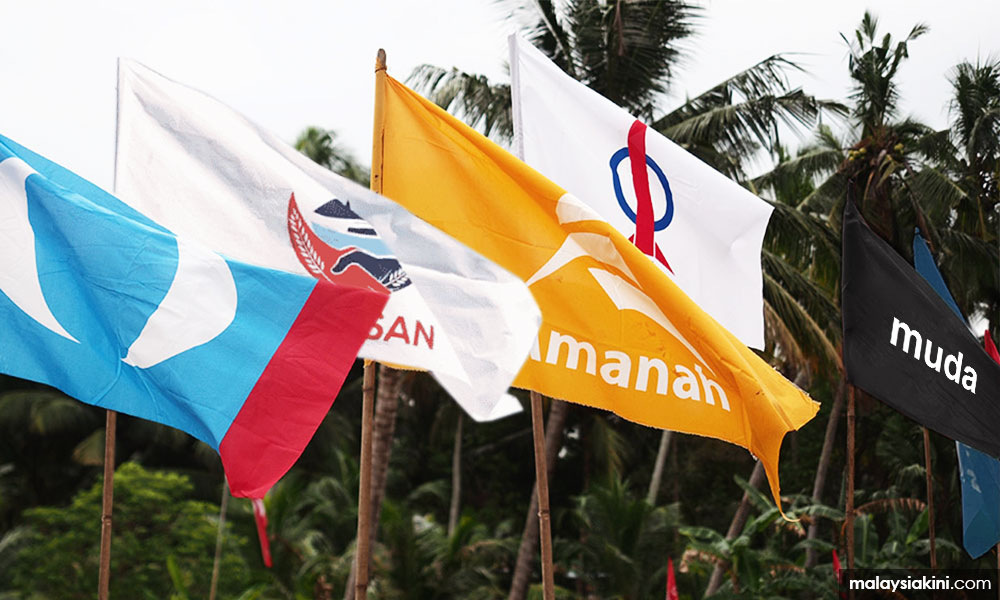
If we think they don’t really bring added value to Harapan and when they joined Harapan, it’s all about riding on Harapan’s appeal to the progressive-minded voters, why do we go through the hassle of trying to give them seats and kill each other because that will destabilise Harapan further?
Preserve and avoid casualties
Malaysiakini: Realistically, what do you think are Harapan’s chances for GE15?
Rafizi: The best so-called data point to project is the last Johor election, and to be fair to Johor, it’s kind of representative of the parliamentary seats because Johor itself is a microcosm of Malaysia as a whole. So the Johor results are actually quite a bellwether reflection of the country.
If it goes by Johor, I think we are in trouble. Some people will not like it because I have been quite transparent, I think we are looking to preserve and avoid casualties. I do not think we are really looking at realistically winning the general election.
It doesn’t mean I say we cannot win, it means that if we don’t do anything now and expect miracles, we should expect huge casualties. So, hopefully, with whatever months we have, we appeal directly, we double down as much as possible, we go back to what appeals to the public. Whether that is enough to make us closer to winning the general election, I don’t know and I will need to see the data.
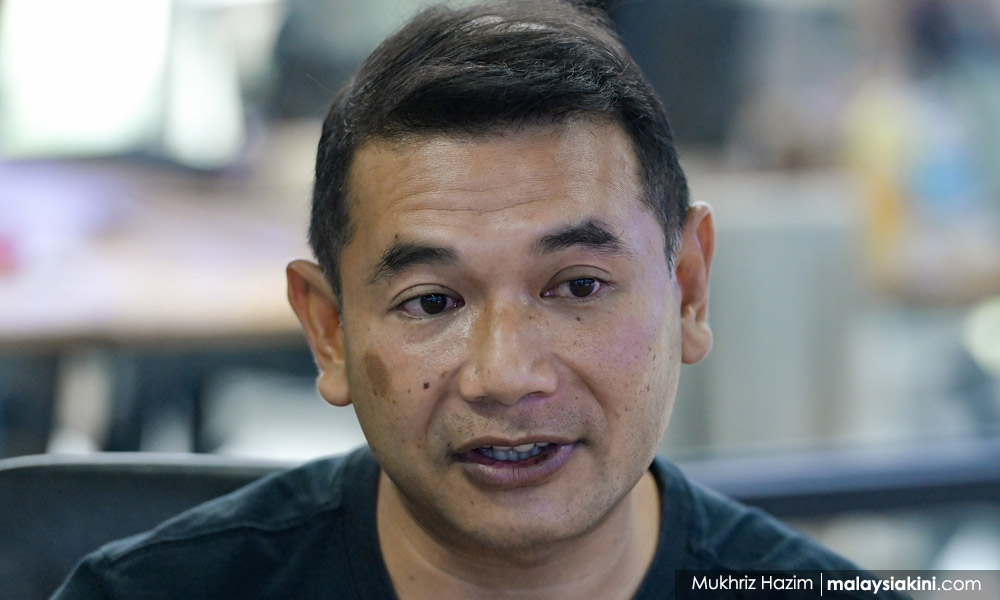
The best I hope for realistically now is to make sure Harapan stays intact as the largest opposition bloc in Parliament after the next general election. If we do things right in the next three to four months, hopefully, the results will be very close that Harapan, even if we cannot form the government, is perhaps the second or largest bloc on its own.
What we don’t want is not only that we lost, but we are the third or fourth-largest bloc in Parliament because that means Harapan is losing relevance and that’s dangerous. So, realistically speaking, let's try to win about 80 seats in the next general election because I think 80 seats is the kind of benchmark we need to aim for to remain as the largest or second-largest bloc in Parliament.
Hopefully, it’s doable, if we pull up our socks now. - Mkini



No comments:
Post a Comment
Note: Only a member of this blog may post a comment.